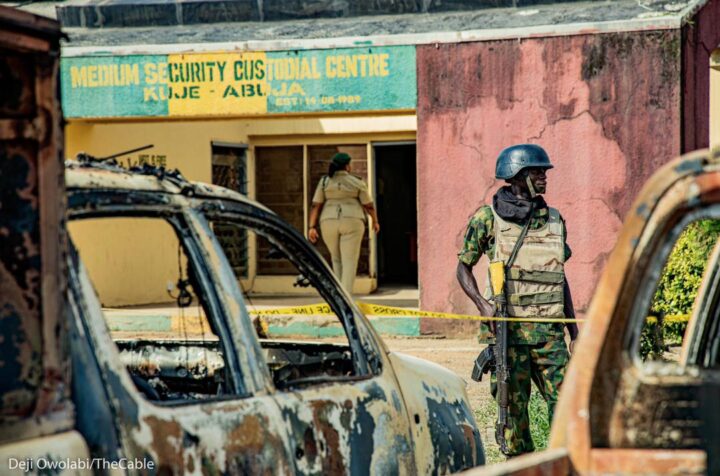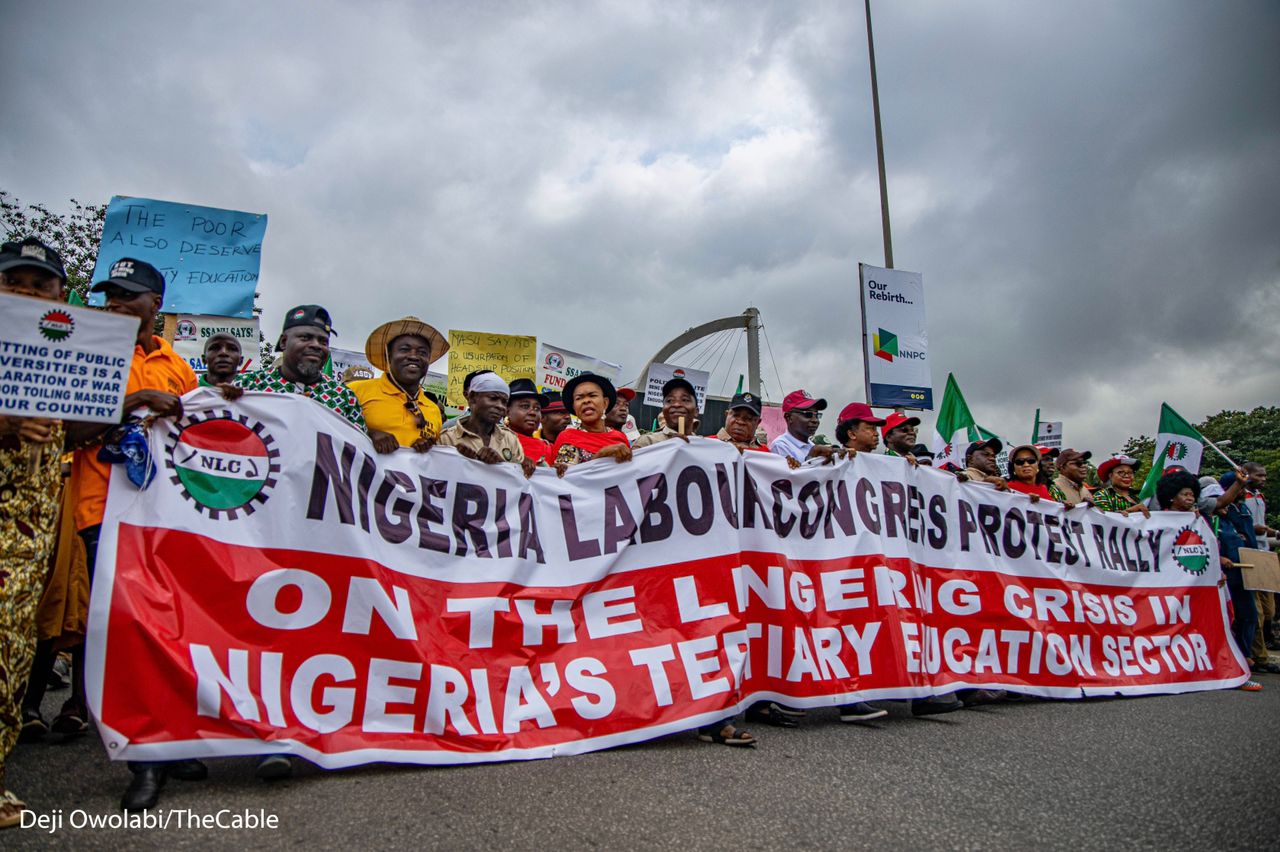BY JULIUS OGUNRO
We should be worried that the pattern that led to a total breakdown of law and order in the far north, with bandits taking over communities, is already happening in Abuja. At present, we are at the early stages of this pattern. It starts with the bandits committing minor crimes in the outskirts of towns, then followed by carrying out violent and shocking crimes, before finally settling in safe communities and becoming the law and order in those places. From their crime commune, they embark on an endless spree of kidnapping and killing almost uninhibited.
This pattern is becoming manifest in Abuja. The bandits started by attacking people who live in Kuje and its environs on the outskirts of town. Then, they attacked the Kuje Prison, the medium security correctional centre, in an operation that lasted hours. This week, they launched a daring attack on the elite Brigade of Guards in Bwari, reportedly kidnapping 13 soldiers and killing a few. It appears that these dare-devil criminals can successfully raid any location in the federal capital almost casually.
Even worse, intelligence reports suggest that some of the bandits are already settling-in in the hills and mountains around Mpape, a Maitama suburb, in AMAC local government area. AMAC, significantly, is the most cosmopolitan area in the FCT, the location of nearly all major government ministries, agencies, and parastatals. Please, note the pattern. The criminals are making their way from the outskirts to the city centre itself and perhaps eyeing the very seat of our government!
Advertisement
Intelligence shows that the bandits relocated from states in the northwest to the Mpape area because the mountains and hills around those communities provide them with a natural shield and fortification for their operations. With the new criminal outposts and branches, this is Zamfara and Katsina happening before our eyes. One cannot even begin to imagine the evil that these bandits can wreak on schools, churches, mosques, and other soft targets in Abuja from their hideouts.
It makes sense that the criminals who attacked Kuje Prison and launched the assault on the Brigade of Guards have a safe location somewhere in town. According to reports, the bandits that freed Kuje prisoners were in their hundreds. It is inconceivable that this vast number of people simply disappeared into thin air or boarded a flight out of town. It is most likely that after the operations, they simply returned to their hideouts and safe locations until they conceive and carry out another hideous crime.
The authorities in Abuja are obviously aware of the dangers these groups pose. The reason that they hurriedly announced this week that all federal government schools be shut down. But that is only a knee-jack response to the threat of banditry and terrorism in the federal capital. Schools cannot be closed forever. Even if they were, what about markets, malls, churches, mosques, and other places where large people congregate?
Advertisement
It appears that our levity towards serious crime has finally caught up with us. I recall that banditry at this scale started in Benue and Southern Kaduna, where large numbers of people were often killed in the name of herder-and-farmer conflicts. The photos that came out of those places were gory and could break any heart. Tens, sometimes hundreds, of corpses of children, women, and men would be seen in rows with relatives, friends, and associates mourning their beloved ones. No comprehensive security measure was ever designed by the government, to my knowledge, to contain the crises and even more important to make sure that the perpetrators were punished. That would have sent a strong signal to the criminals that the government would not tolerate the killing of any Nigerian and that the life of every Nigerian is valuable.
But nothing happened, outside the perfunctory press statements threatening fire and brimstone. Killers of hundreds of Nigerian citizens walked away free. Still do. It is therefore no surprise that banditry has metastasized and spread like a bushfire in the harmattan.
The truth is that these bandits could sense that the Nigerian state is weak and that there is so much the government can do. With a full-blown insurgency in the north-east and the lack of a comprehensive response to mass killings in the north-central, the criminals know that they too can get away with anything. The Nigerian state appears to have lost an important ingredient of statehood, the capacity to elicit fear and therefore deter crime. It is now in sorry shape, a condition that in street lingo would be described as see-finish.
For the safety of all of us, for the sake of our unborn children, the Nigerian state needs to re-assert itself, dominate every inch of the country, and punish criminals, whether they are terrorists, kidnappers, or killer-herdsmen. To restate, in the short term, the government needs to be ruthless with all forms of criminality to send a strong message and save this country from total anarchy, while working aggressively on the macro conditions that give rise to these crimes. It is only then that it can win back the trust of law-abiding citizens and the fear and respect of criminal groups.
Advertisement
I however don’t see this happening soon. From historical experience, this government doesn’t do much and appears to confuse processes with outcomes. Why does insecurity persist in Zamfara? Government response: The president had a meeting with the security chiefs and gave them marching orders! Nothing is ever heard of the matter again until another security emergency. The government wants us to judge it by its effort, which by my estimation is tepid, and to forget the fact that it has little result to show.
So, for fellow residents of Abuja, I don’t hold high hopes that the terrorists lurking around town would be vanquished anytime soon. Going by the experiences in Zamfara and the president’s home state of Katsina, there is no cause to cheer and we should perhaps begin to learn drills and teach our children and family personal safety techniques. And to pray, too.
Views expressed by contributors are strictly personal and not of TheCable.
Add a comment






